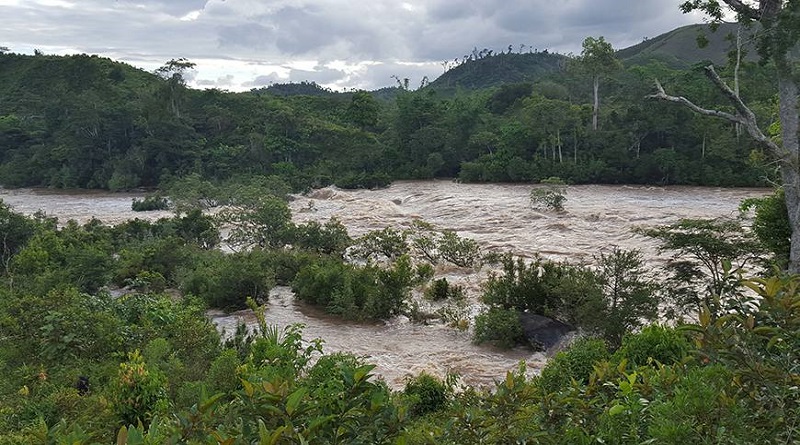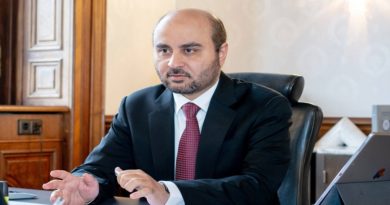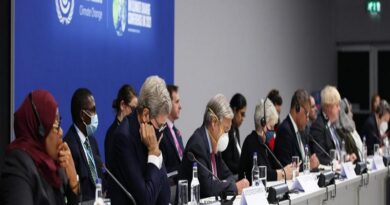GEF, World Bank to finance $78.7m Sustainable Landscape Management project in Madagascar
In a bold move to address the drivers of environmental degradation and the challenge of climate change in Madagascar, the Global Environment Facility (GEF) and the World Bank are set to finance a $78.7 million Sustainable Landscape Management project in the country.
The total project funding comprises of $65 million IDA and a $13.7 million GEF grant.
The Sustainable Landscape Management project will take care of reducing the degradation of soils and forests, managing water resources and increasing agriculture productivity and people’s livelihoods in an integrated manner.
Madagascar is endowed with large amounts of arable lands, vast deposits of mineral resources, abundant labour, and unparalleled biodiversity. However, Madagascar remains among the poorest countries in the world, facing political instability, agricultural productivity deficits, and severe climate impacts.
Four out of five Malagasy depend directly on land, water and forests for their livelihoods. Agriculture is either a principal or secondary economic activity for 81 percent of all households. In order to help the rural population of Madagascar better manage the natural capital provided by agricultural lands, forests, and protected areas, the Global Environment Facility (GEF) and the World Bank are financing a multi-million dollar project for the integrated management of natural resources in Madagascar.
As environmental challenges become increasingly complex and urgent, the GEF has adopted a more integrated, multi-stakeholder approach to address the drivers of environmental degradation. The Sustainable Landscape Management project is in line with the need to have more impactful, scalable projects. A close collaboration between the three donors, it proposes a landscape approach to promote better coordination and integration between key sectors influencing land management, notably agriculture, water, and environment.
Through the project, local rice producers, upland farmers, and forest users from four different regions in the country will have access to improved irrigation services, agricultural inputs, and service delivery.
“This new project for Madagascar seeks to tackle complex environmental challenges through a more integrated, multi-stakeholder approach. By restoring and sustainably managing the natural capital provided by agricultural lands, forests and protected areas, it will benefit more than 38,000 rural people,” said Jean-Marc Sinnassamy, program manager at the GEF. “The project integrates the agriculture, water, and environment sectors in an innovative landscape approach, and will make a major contribution to Madagascar’s engagement with the Bonn Challenge, through which they aim to restore 4 million ha of forest landscapes by 2030.”
The project will target five selected landscapes: Andapa, Soanierana Ivongo, Iazafo, Bealanana, and Marovoay. Through the project, local rice producers, upland farmers, and forest users from four different regions in the country will have access to improved irrigation services, agricultural inputs, and service delivery. It will help to improve management effectiveness of ten protected areas, sustainably manage productive landscapes and forests, and protect forests, covering a total area of more than 1.13 million ha, and benefitting 38,000 rural people. The project will also reinforce the capacities of national, regional and local level administrations, decentralized entities and CSOs. Innovative financing mechanisms such as payments for ecosystem services, REDD+ and carbon financing will be tested and deployed to make the approach sustainable.
The Sustainable Landscape Management project will contribute to climate change mitigation, since it covers an area that constitutes a sizable carbon sink. It aims to reduce emissions by more than 3 million tons CO2e over twenty years thanks to agroforestry practices, sustainable forest management, reforestation, and improved crop management. It will also make a significant contribution to Madagascar’s engagement with the Bonn Challenge, which aims to restore 4 million ha of forest landscapes by 2030.
“The Sustainable Landscape Management project will take care of reducing the degradation of soils and forests, managing water resources and increasing agriculture productivity and people’s livelihoods in an integrated manner,” said Jan Nijhoff, Gianni Ruta and Shelley Mcmillan, World Bank task team leaders of the project.




